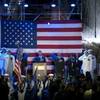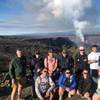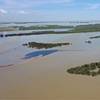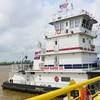The engineering consulting firm, Noise Control Engineering has just received a subcontract from Friede-Goldman Halter for the engineering and acoustical design services on NOAA's new Fisheries Research Vessel, the FRV-40. The ship will be designed to quietly perform fish stock assessment studies in the open ocean. According to Mr. William Michaels, NOAA Fisheries Biologist at the National Marine Fisheries Service in Woods Hole, Massachusetts, "The new FRV-40 design will significantly lower radiated vessel noise reducing the effect that noise may be producing on fish behavior around our sampling operations."
When completed the FRV-40 will be one of the most sophisticated and quietest vessels of its type. Noise Control Engineering or NCE will be a key participant in the detail design of the vessel along with Halter Marine's Engineering office in Gulfport, Mississippi. NCE will be preparing numerous acoustic design studies and analysis. The firm is responsible for noise control treatment recommendations and their design. During construction, NCE will be performing construction inspections and eventually test the vessel to show it meets the requirements for underwater sound.
NCE receives this contract just as it was celebrating its 10th anniversary in business. The firm was started and is owned by Raymond Fischer who has authored numerous papers and standards on the acoustic design of ships. This is not the first collaboration between NCE and Halter Marine. NCE assisted Halter with other noise critical vessels including the AGOR-24 Class Oceanographic Research Vessels, the Alaska Marine Highway Ferry, M/V KENNICOT, and recently the U.S. Navy's T-AGOS-23 Oceanographic Research Vessel. Halters project manger, Mr. Jim Dixon stated that, "The success of the project will be measured by Halter Marine's ability to build a fishing research vessel that will meet or exceed the underwater radiated noise standards set forth by the International Council for the Exploration of the Sea (ICES). As such, NCE was chosen to provide noise control engineering expertise during the design and construction phases because of their "value added" abilities, that they can bring to the NOAA program".
Sponsored Content
MSC Sets a New Standard for Time Off in 2025, Plus Earn a $38,340 Bonus as an Able Seaman!

April 2025
 Read the Magazine
Read the Magazine

 Read the Magazine
Read the Magazine
This issue sponsored by:

Crowley Builds the Future Maritime & Logistics Workforce
Subscribe for
Maritime Reporter E-News
Maritime Reporter E-News is the maritime industry's largest circulation and most authoritative ENews Service, delivered to your Email five times per week








